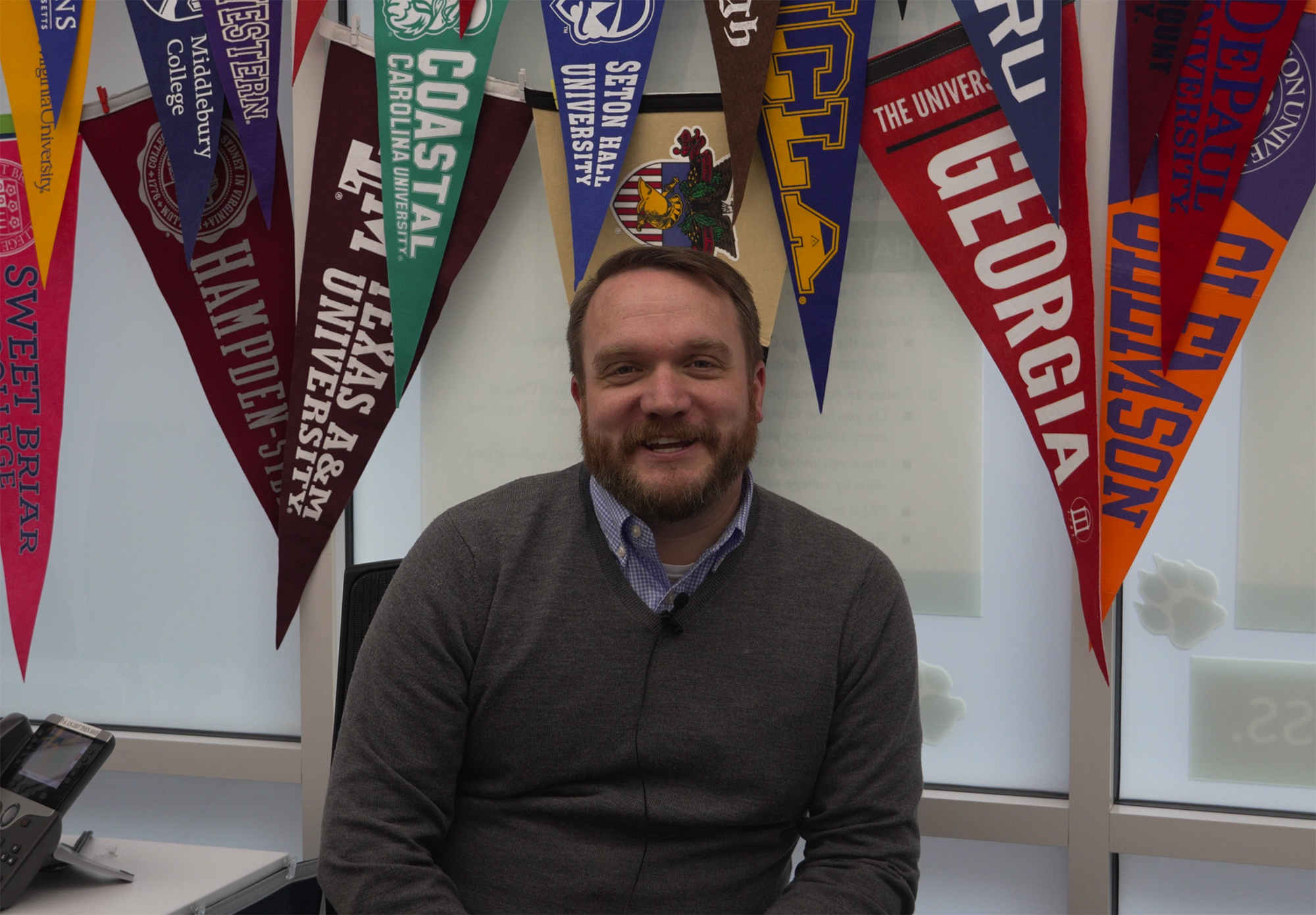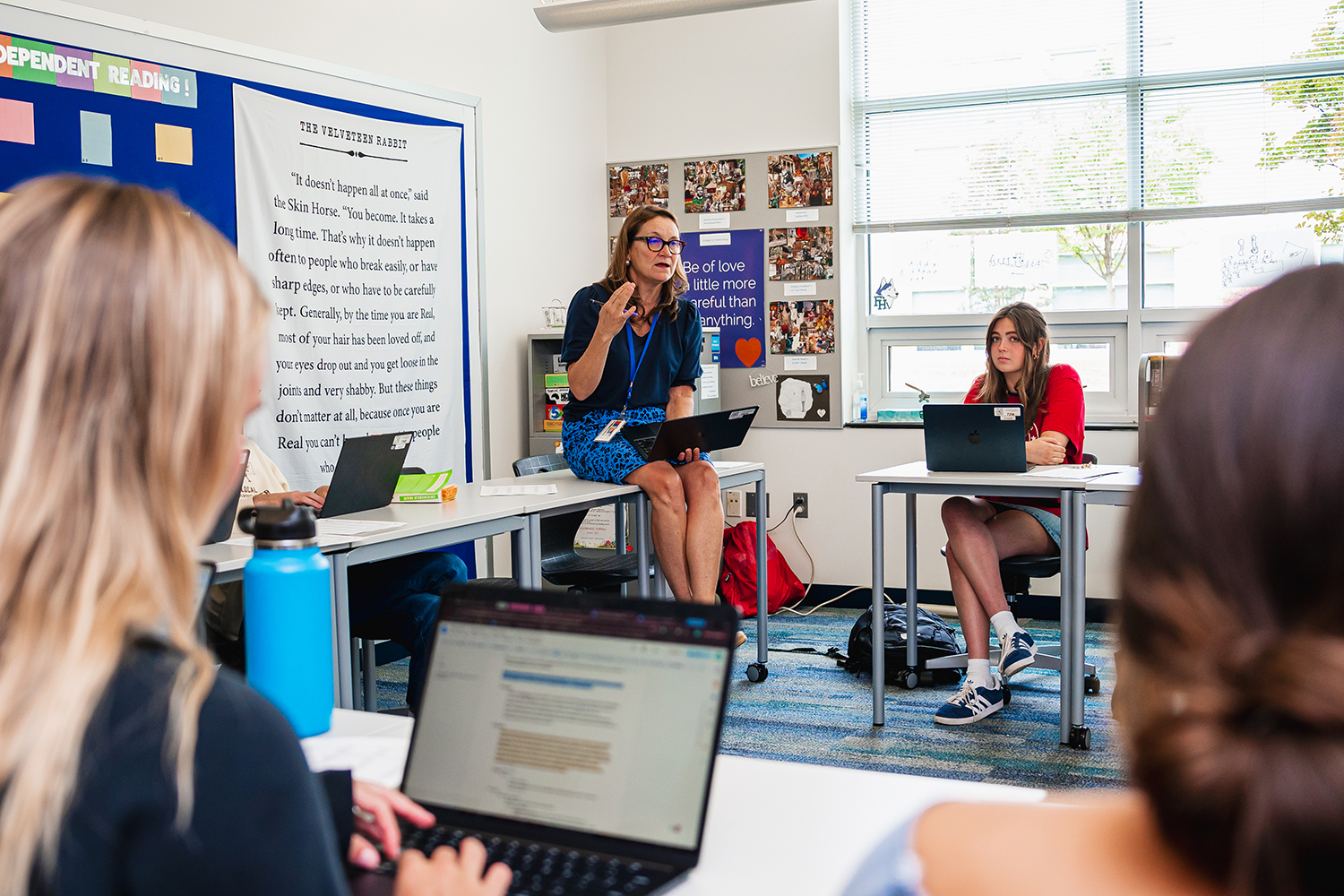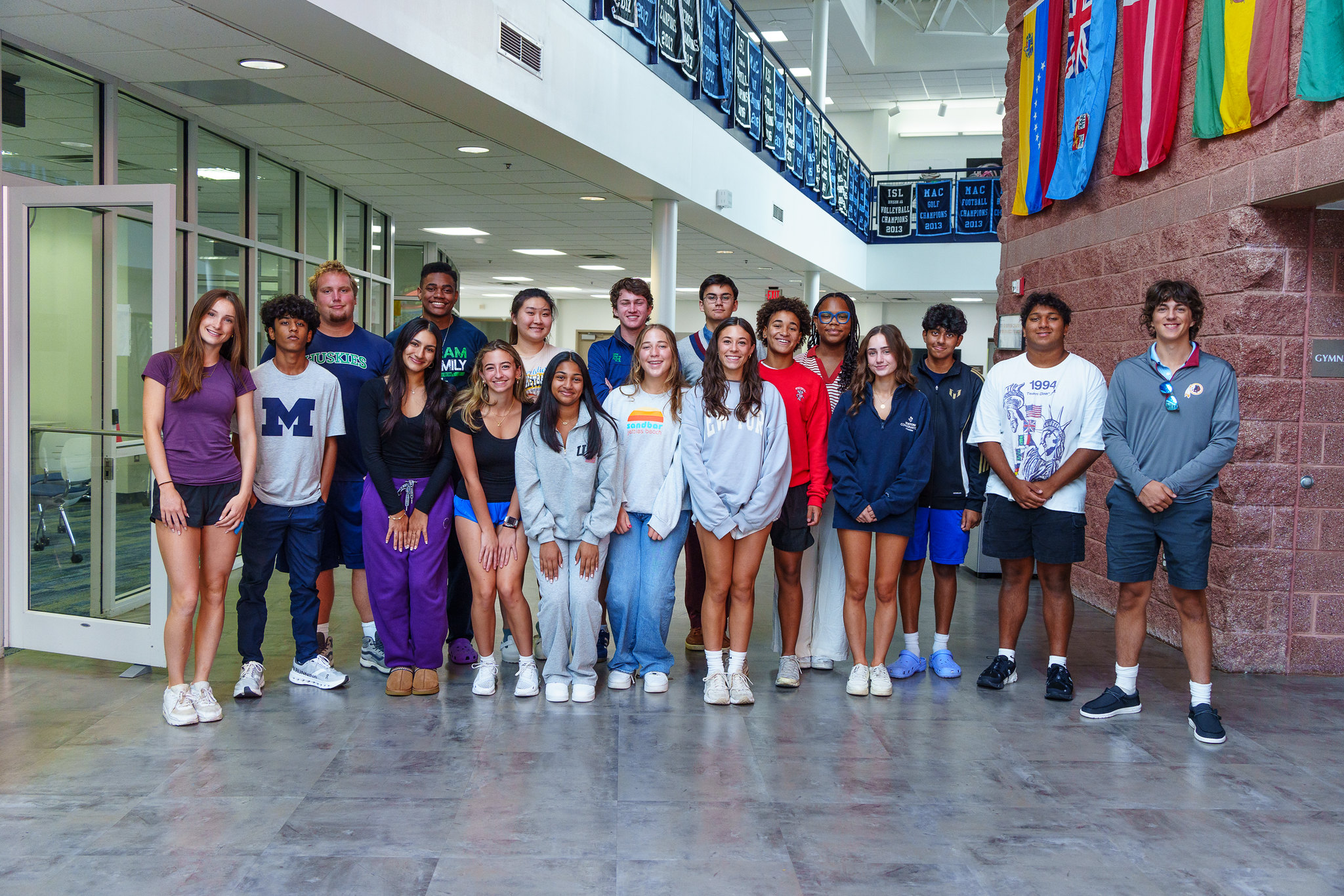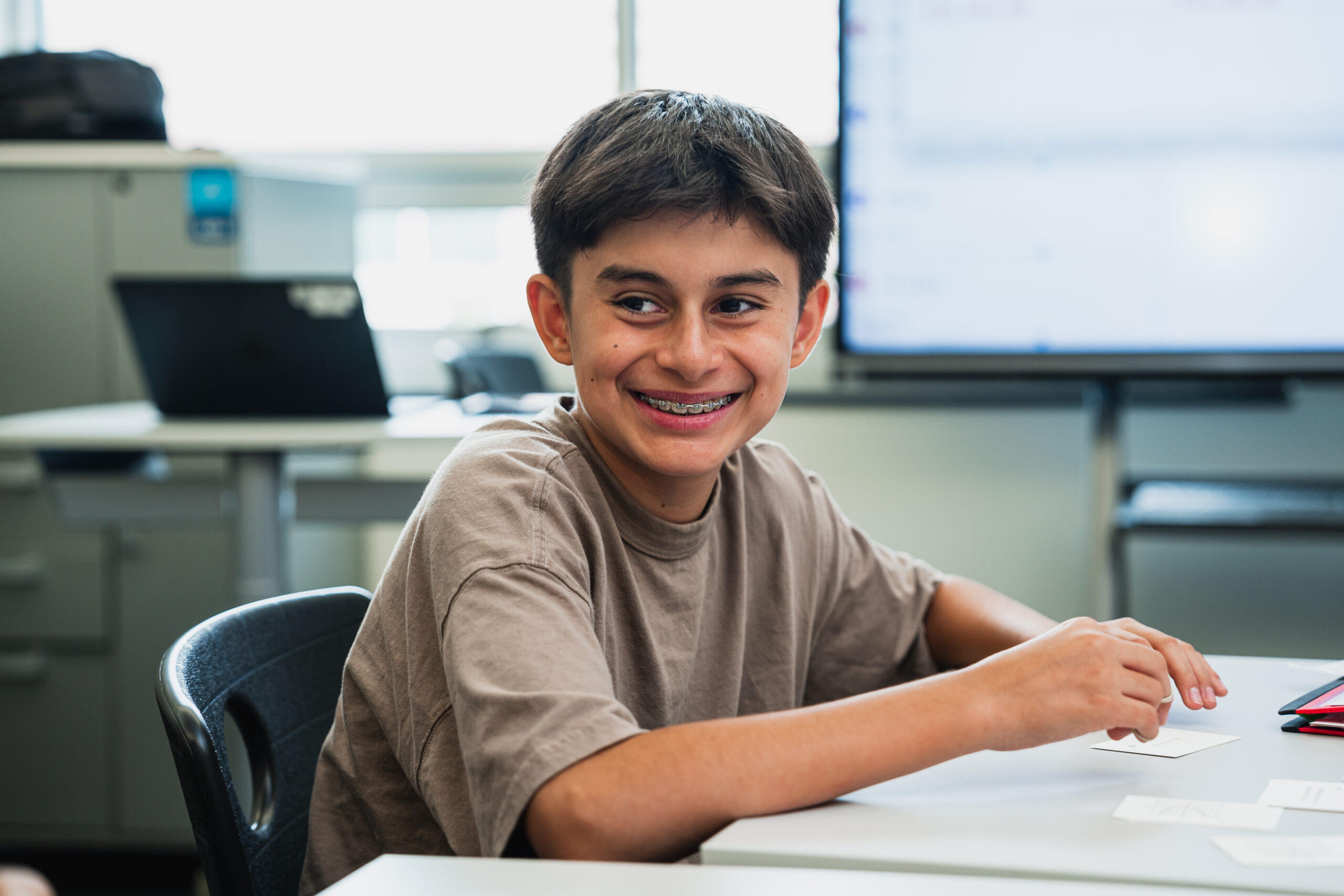LEARN MORE ABOUT FLINT HILL
HUSKY HIGHLIGHTS
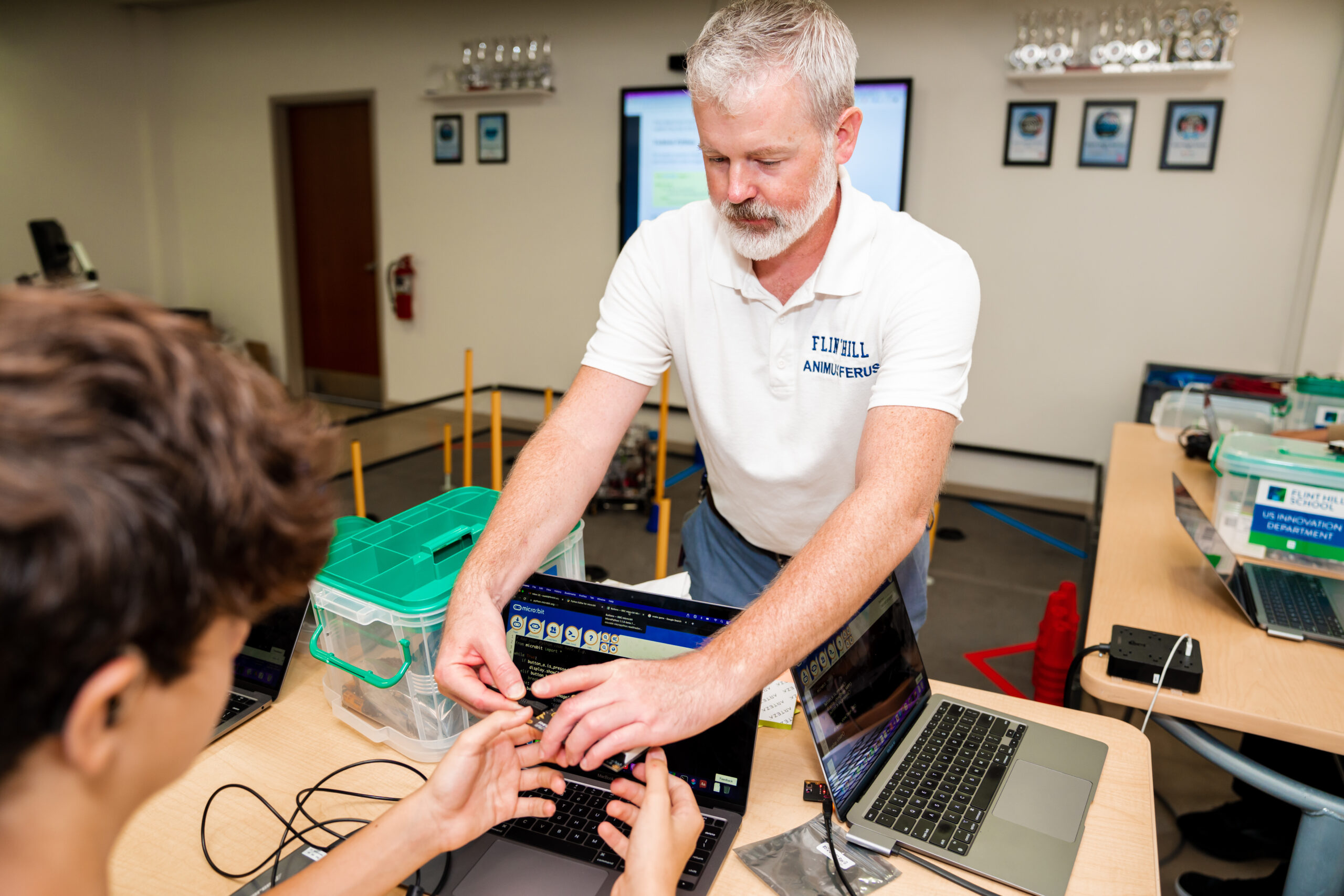
August 20, 2022
Written by Flint Hill Admission Team
Teacher Spotlight: Michael Snyder, Upper School Robotics
As a prospective parent, you’ve probably seen Michael Snyder’s photo on our website and in emails. Mr. Snyder holds a master’s degree in education, is the architect of Flint Hill’s award-winning robotics program and team, and teaches cybersecurity — another award-winning program here. We talked to him about teaching, what his students go on to accomplish, and how he built the robotics program.
How did you get into teaching robotics?
I was teaching math, and our headmaster [John Thomas] saw on my resume that I had coached a robotics team. He told me about how his son found his niche with robotics and wanted to start something like that here at Flint Hill.
So you were the first robotics teacher here?
Yeah. I started the whole program. I’ve been here for 11 years now.
What is your favorite thing about teaching Upper School students?
I love teaching high school age because of the potential that's there, taking so many students who are quite raw, new to the subject and turning them into nearly professionals in robotics.
And are many of your students robotics professionals by the time they graduate?
Yeah, a lot of them will be at that level. They're getting college internships over some college students based on what they're learning here. And while they’re in college — one student who went to UCLA was near one of the companies that we work, Design Technologies, and they have a campus here and in California. And so he did his student internships, the senior project with Design and then all four years of college worked for them. And then they just hired him permanently when he graduated.
Some students go into mechanical engineering, some have gone into electrical engineering. Some go into computer programming and some have just gone straight into a robotics field.
What's your favorite thing about teaching your ninth-grade robotics class?
Teaching Robotics I is a lot of fun. Students come in here with a lot of curiosity and oftentimes not knowing what a robot is. They learn that a robot needs to be able to sense its environment, to create a plan based on what it has sensed and then act in some way in its environment. They go through the engineering concepts and design concepts and put together a robot. They design their own circuits, program the robot and then ultimately work together to create a robot that could have an impact in the school.
We're currently working on a food delivery robot to deliver food from our snack shop to students. We've worked on a line painting robot for the field so that the facilities personnel wouldn't have to paint the field by hand. We could have a robot do it.
How do you start them off, in that class?
So we start with a small robot that has a breadboard on it. And students build the robot and then they use the breadboard to create their own circuits and their own sensors. We then learn Python programming to program the robot.
Do you find that many students from your ninth-grade class go on to become members of the robotics team or take further classes?
Nearly all of them go on to our after-school robotics activity. Students go on to compete in the first tech challenge. Students also do progress onto Robotics II, and in that class, they learn to use computer-aided design software called Fusion 360. For their Robotics II class, they take a certification exam instead of taking a final exam. It looks really good on their resume. It shows that they understand the tools that are used by real, professional engineers.
Wow. They did not offer all of this at my high school!
Yeah! I mean, when John Thomas asked me to create the robotics program, I thought, “Well, what would I have wanted to take in high school and what would look good if I was a student now on my resume?” That's kind of the impetus behind it all. I created the curriculum and looked for competitions that would support the student learning, but also give them an advantage going into the industry.
So that's why I found the student unmanned aerial systems competition, which is a college-level competition. I thought, “Well, at least our kids trying to do it is going to be extremely beneficial to them later on.” And it turns out they excelled at it. They did very well.
We've come in second place in the world two years in a row, first in the US, beating out several colleges such as Harvard, Stanford, U.S. Naval Academy, Embry-Riddle University. We create a drone that can fly six miles autonomously and do several other tasks.
The competition is built sort of like a Department of Defense contract. So, much like a company going after that contract, the students have to create a technical design paper based on the mission requirements, detailing exactly how the platform that they're designing will meet those mission requirements. Then they have to create a flight readiness review video showing that their craft is doing those things and then at what percentage it's doing them. So it's capturing those waypoints with 90% accuracy, something like that.
And then we go to an actual naval air base to do our mission demonstration and compete against the other teams — 72 other teams from around the world.
That's the type of experience that's getting these kids those college-level internships.
What do you think makes Flint Hill stand out from other schools?
I don't think the kids here at Flint Hill would be as successful in the robotics program and specifically the skills competition if it wasn't for a really strong physics program, a really strong English program, a really strong math program. They are getting all of these tools and then putting them together here in this capstone class.
LEARN MORE ABOUT FLINT HILL
Fill out the form to receive updates from our team.
RECOMMENDED FOR YOU
Upper School Freshman Class Dean Andrew Kane shares seven key things he wishes parents knew before their students start high school.
Flint Hill's Women’s Literature course explores what it means to navigate the world as a woman. It features a broad range of media to shed...
Our Upper School Dean of Students talks about leadership opportunities that are available to students in grades 9-12 at Flint Hill.
Want to know how Flint Hill Upper School students choose their courses each year? We provide an insider's look at the process.



